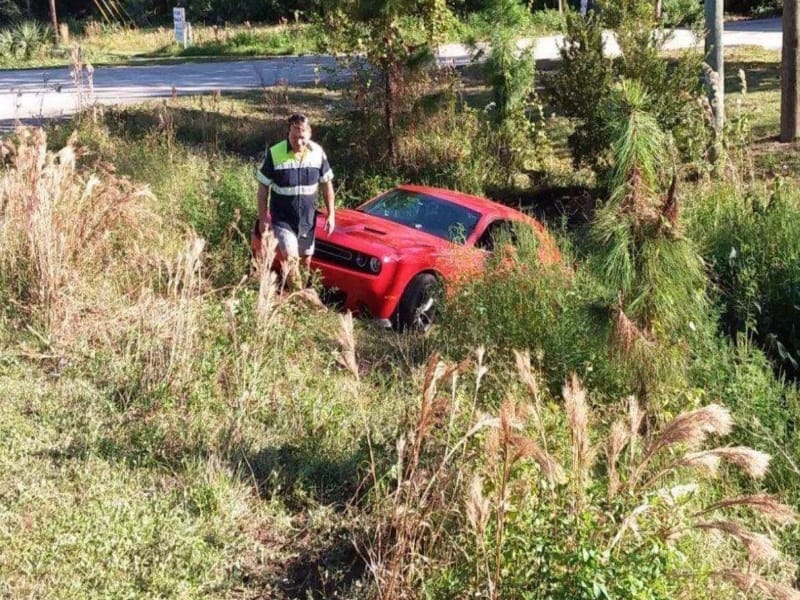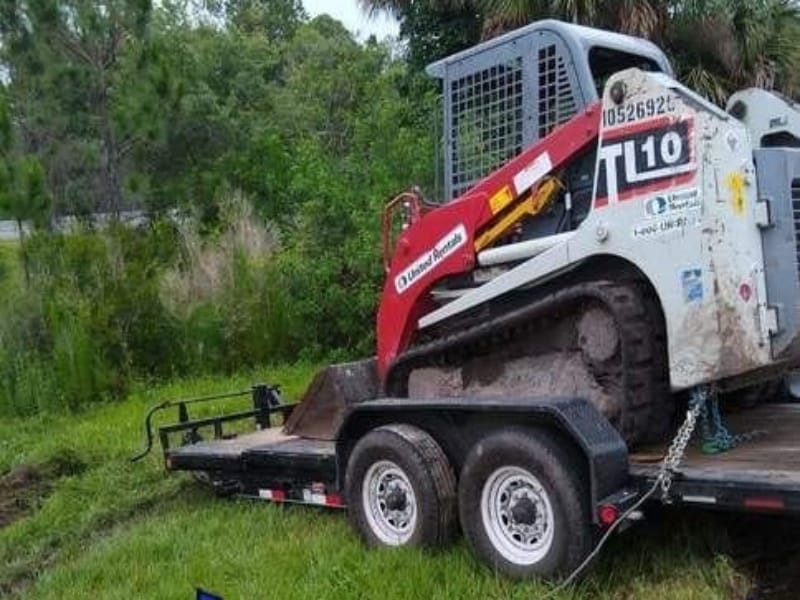Mud, Sand, and Tow Straps
If you’ve ever found yourself stuck axle-deep in soft sand or spinning your wheels in a muddy patch, you’re not alone. In Daytona Beach, off-roading comes with its fair share of unpredictable terrain. And while some drivers think four-wheel drive is a free pass through anything, the reality can look a lot different once the tires lose traction. That’s when our Daytona Beach off-road recovery becomes more than just a service—it becomes a rescue mission. Our towing teams have been on many of these calls, and every one of them is different.

Tools of the Trade
Getting a vehicle unstuck requires more than just horsepower. Over the years, we’ve built up a solid recovery kit, and we’re ready for nearly anything nature throws at us.
Here’s what we typically bring:
- Winches with synthetic or steel cable for controlled pulls
- Snatch blocks for tricky angles or extra pulling power
- Shovels and traction boards to prep the ground under the tires
- Airbags for lifting when there’s no clear pull point
- Recovery straps with just the right amount of stretch
- Heavy-duty rigs built to get in and back out—loaded or not
We match our gear to the job. For example, pulling a lifted Jeep out of a beach washout is not the same as freeing an RV stuck after a rainstorm. But the key in every case is: slow is smooth, and smooth gets it done.
No Two Recoveries Are the Same
Every Daytona Beach off-road recovery call starts with questions. What kind of vehicle is stuck? What surface are we dealing with? Are there any hazards—like water nearby, low-hanging branches, or soft shoulders?
Here’s a quick breakdown of how we usually tackle things:
1. Sand Traps
Soft sand near the dunes is a classic trap, especially after a high tide. Our move? Deflate tires slightly, use traction boards, and winch from a wide, low point to spread the force.
2. Deep Mud
We approach from the driest side, use a shovel to clear around the tires, then lay down boards or mats. If the mud is deep enough to grab the frame, we lift before pulling.
3. Mixed Terrain
Sometimes a vehicle’s only partially stuck, with one side in a ditch or off a trail. Here we use snatch blocks and precise rigging to avoid side damage and control the angle of recovery.
Don’t Make It Worse: What We Wish Drivers Knew
Before we show up, we hope folks don’t dig themselves in deeper—literally. Spinning your tires or trying to “gun it” out usually makes things worse. Same goes for letting your buddy tow you out with a rope and a prayer. Recovery takes planning. And above all, safety.
Here are a few quick things to keep in mind:
- Don’t keep spinning your wheels. It only digs deeper.
- If you’re stuck, stay put and call someone trained for recovery.
- Never let someone tow you with a strap from the bumper—it could snap and injure someone.
- Don’t try to jack your vehicle up in mud or soft sand without a wide base.
Recovery Done Right
The goal isn’t just to get your vehicle out—it’s to get it out without causing more damage. Scratches, undercarriage damage, even broken axles can happen if the recovery is rushed or rigged incorrectly. That’s why our team always double-checks the setup, uses soft rigging points when needed, and communicates clearly before we pull. A clean recovery is more than just pulling hard—it’s about reading the scene, prepping the ground, and working together.

Universal Towing: Daytona Beach Off-Road Recovery Is What We Do
Our Daytona Beach off-road recovery team can haul trucks out of swampy backroads, pull 4x4s off beach sandbars, and recover campers that lost their footing on a wet trail. Every Daytona Beach off-road recovery is different, but the mission stays the same: get them out without making things worse. Daytona Beach off-road recovery calls take patience, the right tools, and a crew that knows how to adapt. And for us, that’s just another day out on the trail.
So next time you’re out exploring and the ground gives way beneath your tires, don’t panic. Call the pros who’ve done it all before. Daytona Beach off-road recovery isn’t just a service—it’s a skill, and it’s one we take seriously.

